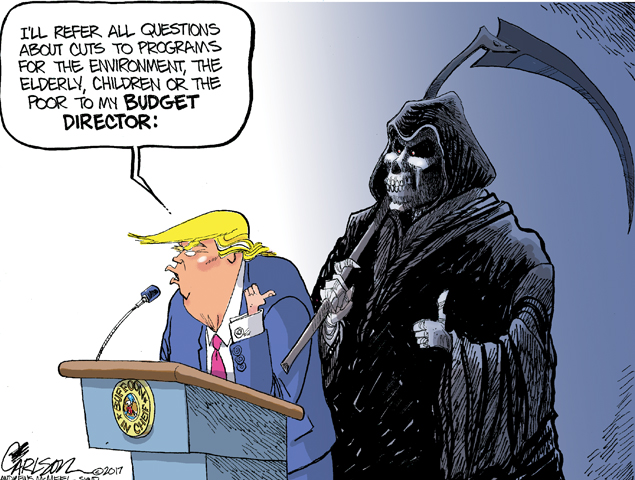
Watching the unraveling of the health care bill on March 23 and 24 convinced us that fixing the current health care system isn't the only battle we must engage. A deeper, more philosophical and tougher fight awaits us.
The House Freedom Caucus — oftentimes called just the Freedom Caucus — played a decisive role in defeating the health care law proposed by House Speaker Paul Ryan and President Donald Trump. The caucus' squelching of the health bill was long planned, and the caucus seized the moment. A week before a vote was even scheduled, North Carolina Rep. Mark Meadows, one of the few public faces of the caucus, told the media: "This is a defining moment for our nation, but it's also a defining moment for the Freedom Caucus. I don't think there's a more critical vote for the Freedom Caucus than this."
The day after Ryan pulled the bill, Politico declared: "The Freedom Caucus stared down its own commander in chief and won — delivering a black eye to his early presidency and potentially damaging the rest of his agenda."
The Freedom Caucus is a shadowy group formed just two years ago with the declared intent to push GOP leadership rightward on fiscal and social issues. Except for its nine founding members, it doesn't publicly disclose who belongs to it. Its meetings are not public and membership is by invitation only. It's thought to comprise about three dozen members, among them the most conservative Republicans in the House. Many are veterans of the tea party movement but have relatively little legislative experience, according to the Pew Research Center, with nearly three-quarters elected since 2010.
Health care is but one target of the caucus. Its members represent an extreme strain of American politics with a passion for diminishing the size of government, no matter the cost to safety, equality or the general common good. Reducing the size of government is the caucus' holy grail. It wants massive tax cuts and would slash discretionary spending in the federal budget while gutting environmental, financial and business regulations, and reducing the freedoms of women, minorities, and lesbian, gay, bisexual and transgender persons.
This anti-government crowd thwarted Republican leader John Boehner of Ohio*, eventually forcing him out as speaker of the House. The caucus seems to be leading the current speaker, Ryan, down that same path. Defeating the Ryan-Trump health plan has emboldened the caucus.
Trump has alternately praised the caucus and berated it; where he ultimately will end up is unknown. His populist leanings put him at odds with parts of the Freedom Caucus agenda, but his obsessive need not to lose may ultimately push him to accept measures he otherwise would not. We saw Trump's willingness to adopt the caucus' extreme views in the fight over the American Health Care Act, when he agreed to repeal essential benefit guarantees like maternity coverage and mental health services.
The next high-stakes debates will be over tax reform and the budget. You can bet that with Ryan running the show in the House and Kentucky Republican Mitch McConnell leading the Senate, talk will center on making government more efficient and returning power to the states, but the Freedom Caucus will hijack these efforts and attempt to push Congress beyond where even Ryan and McConnell would go. Remember, they want the destruction of government as we know it.
We have a different vision. We believe that government should stand between corporate interests and the people. We believe government should provide essential services for the common good of all. These services include health care, housing, education, jobs that pay living wages, infrastructure and social safety nets.
The extremes, by nature, serve the interests of a very few. We embrace a broader vision of government and of politics, one that puts people in the foreground, especially those most marginalized. It is by the calculus of how all lives are made better that we should judge success.
*An earlier version of this editorial misidentified the state John Boehner represented in Congress.


